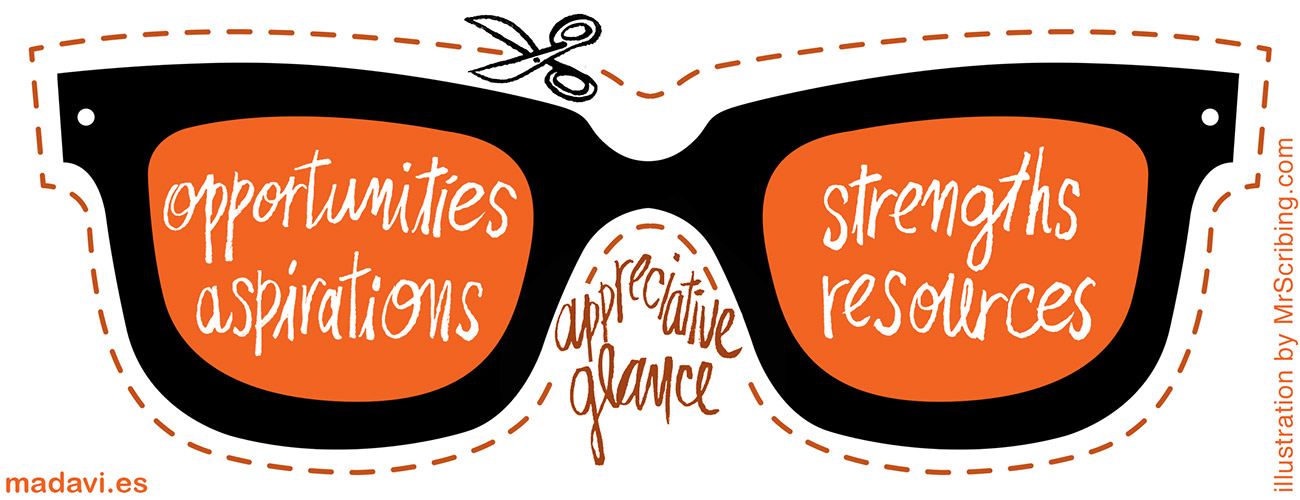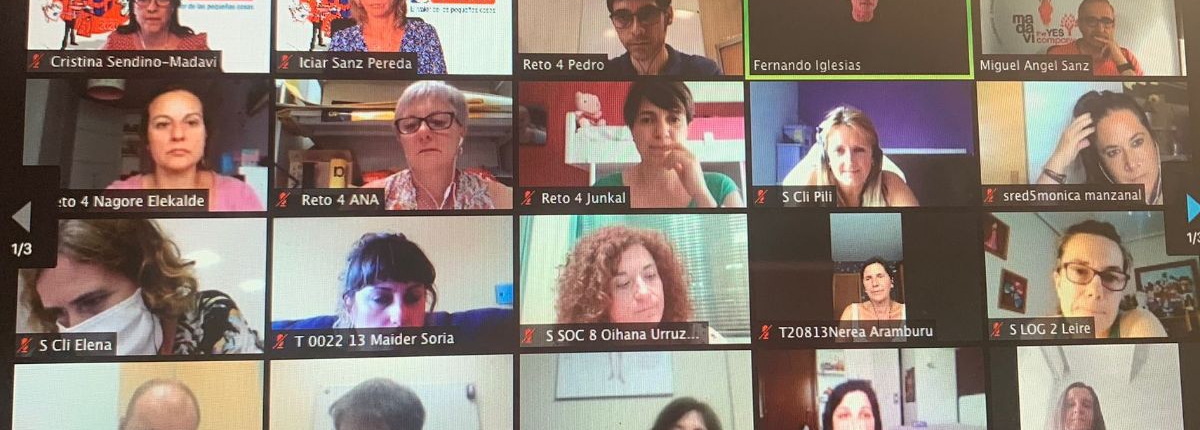Imagine that your son shows you his school report; He has obtained a ten, a nine and a failed. What would attract your attention? The failed probably. Because we are accustomed to focus on what does not work, on our weaknesses.
Now let us enter an annual sales meeting. The departments A, B, C y D have easily surpassed all growth indicators, X has not, however, reached its commercial objectives. On which division will you center the meeting?
What has always been done in companies when things have not gone well? One analyses the causes of the problem; a solution is found, and a plan of action is applied. It is the paradigm of scarcity, what you do not have.
Inquire about abundance, in what you DO have, compared to scarcity, to weaknesses.
With appreciative inquiry, the opposite paradigm has arrived, that of abundance. Instead of focalising on problems, appreciative inquiry proposes that we take advantage of that situation to generate an even greater change.
This approach is used more and more each day and, in more areas, such as sports, education, the world of business and R & D. All these areas have shown that to awaken a more positive image of themselves impacts on the whole organization and, thus, permits us to reach further and quicker.
This positive philosophy of change and managerial organization puts the focus on the best of each person in order to discover with it that we all have more resources available than we thought of at the beginning.
Appreciative inquiry proposes that to improve the productivity and results of a team you should focalize its energy and attention on the qualities that you have.
The underlying idea is that companies change according to the questions that they ask themselves; on the contrary, inquiring into the problems in the best of cases creates an argument that explains the causes that were responsible, but does not allow us to discover how to change and make it always better. If we put the focus on detecting problems, these will grow, multiply and become more solid.
Companies grow and develop at greater speed, as long as they investigate what they DO have and what they DO want instead of investigating problems.
When we study the best moments, what in Madvi we call “summit experiences”, these flourish and multiply.
Madavi the YES Company, the «appreciative tribe »
In Spain, as well, every day and led by Madavi, the YES Company, the number of appreciative companies grows, such as Danone, Pepsico, Schwepes Suntory, Trops, Eroski, Artiem Hoteles, Pepe Jeans, Fritz Ravich, BD… We have accompanied them in their processes of transformation incorporating the corporative culture in their DNA with extraordinary results. And also, online since some time ago with the same results through our virtual platform Madavi The YES Planet.
You can get to know some of our cases and customer testimonies here
If you want to know more about Appreciative Inquiry, we tell you all about it in this video:


